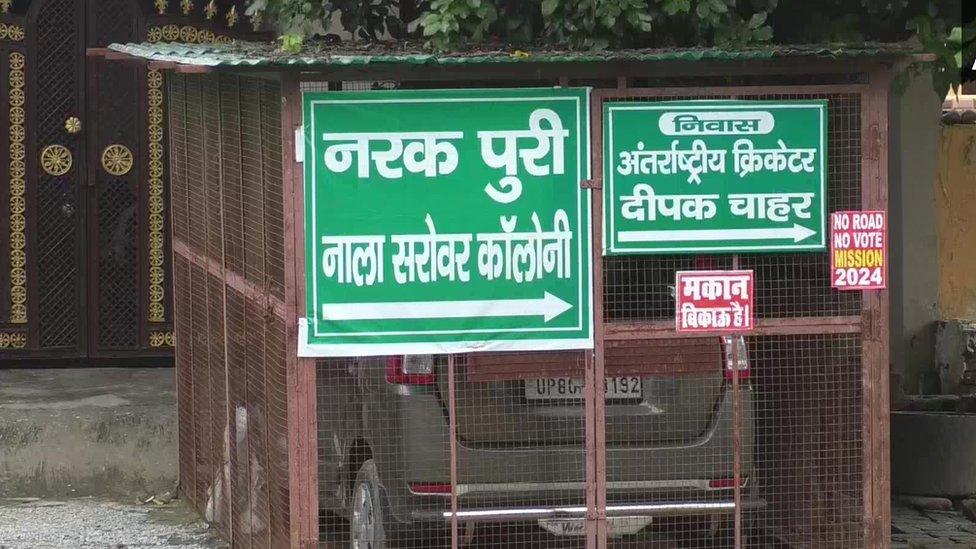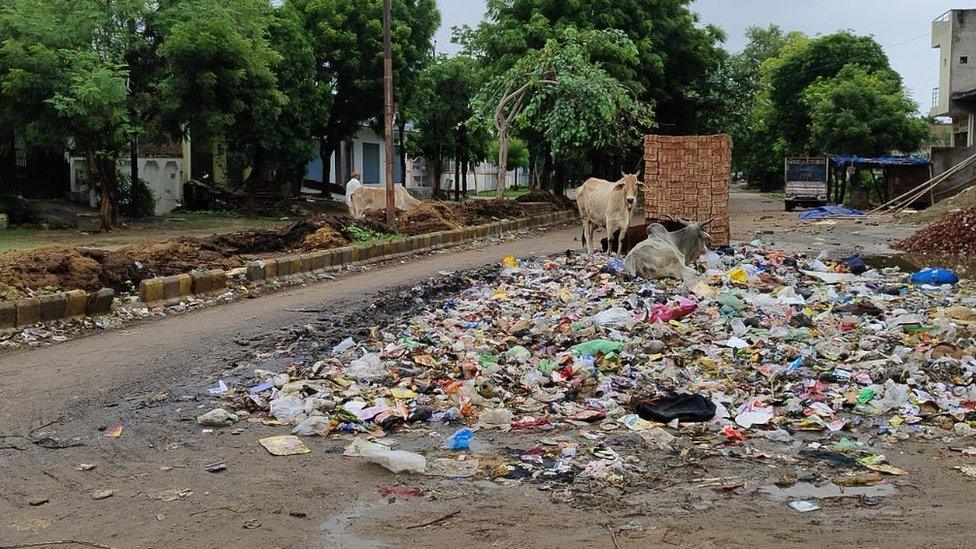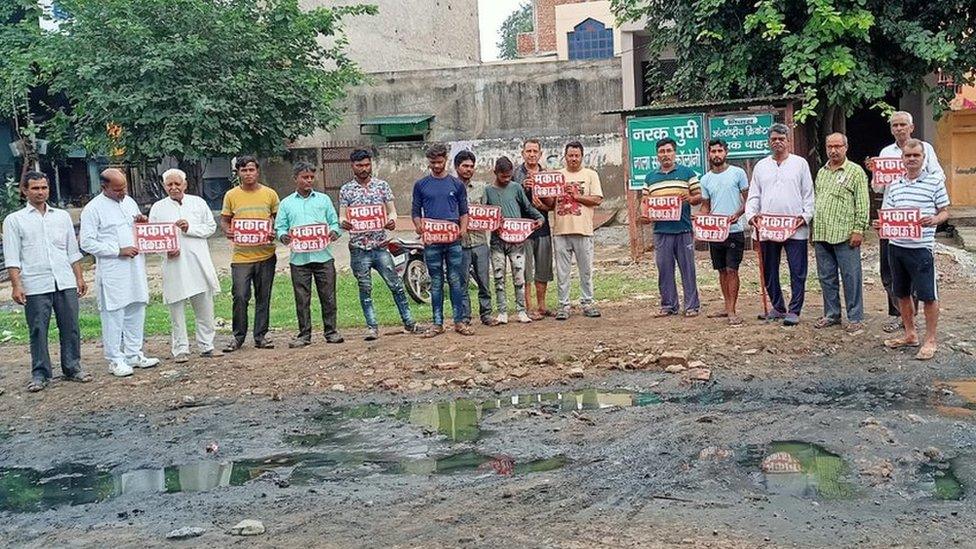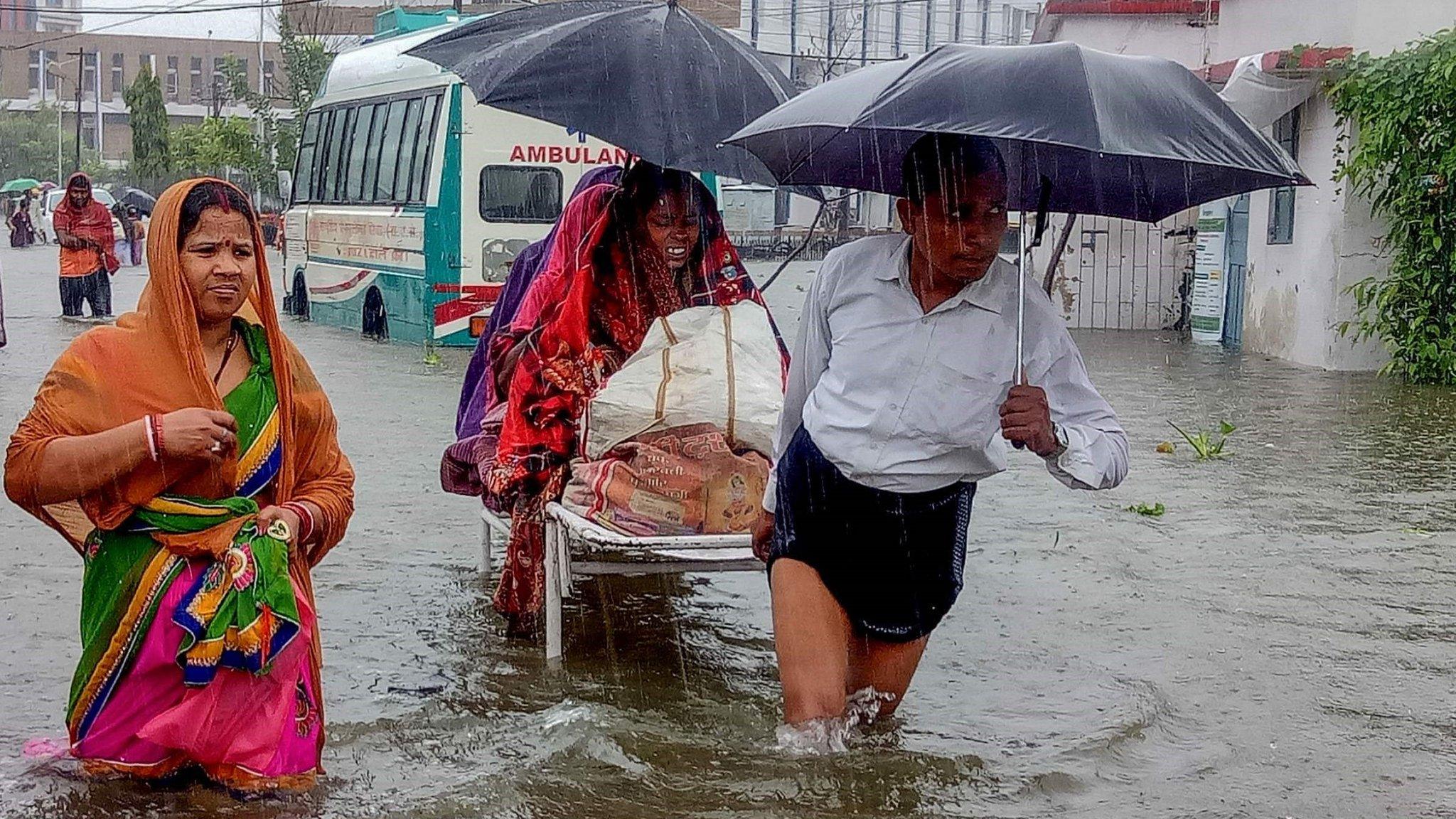Uttar Pradesh: Angry residents rename Agra areas 'smelly town'
- Published

Some residents in Agra city have been renaming their buildings
Some angry residents in India's Agra city have temporarily renamed housing complexes as "gutter colony" or "smelly town" to protest against civic issues.
Residents of Shahganj and Jagdishpura localities blame an unfinished road for causing waterlogging and traffic jams.
The northern city is home to the Taj Mahal, India's most famous monument, and is a big draw for tourists.
But residents in the two areas complain that they have to live with filth and grime in their neighbourhoods.
They accuse the authorities of not fixing their problems despite repeated complaints.
A spokesperson for Baby Rani Maurya, a lawmaker under whose constituency parts of the road come under, said that steps were being taken to start work on the road.
"We have written to the concerned authorities for additional funds so that roadwork can be started." he added.
But in the past few days, with angry residents deciding to take matters in their own hands, green and white signboards - similar to the official ones put up by the city authorities - have been installed on buildings and at road intersections with their new names.
So, Navneet Nagar is now "badboo nagar" (stinking town), Mansarovar colony is "nalasarovar colony" (gutter colony) and Panchsheel colony is "durgandhsheel colony" (smelly colony).
These names have no official recognition, but they have become a talking point in the city of 4.4 million people.
After the protest was reported by the local press, residents say that officials visited the area on Monday and took down some of the signboards.

Garbage has piled up on the unpaved road
Residents of Shahganj and Jagdishpura told the BBC that the incomplete road was due to be finished decades ago but it's "causing serious problems for residents living in 28 housing complexes". They say monsoon rains especially lead to severe waterlogging in the area.
Prashant Sikarwar, 29, a businessman who lives in a residential complex adjacent to the road, said that the kutcha - or unpaved - road made it difficult for his two children to go to school during the seasonal monsoon rains.
"The flooding is so bad that school buses refuse to ply on the road during heavy rains. My children have had to skip school for several days because of this," he said. "It also becomes difficult for ambulances to reach our building during an emergency."
Mr Sikarwar said even his relatives don't visit his house during the rains because of the flooded road.
"Despite our repeated complaints, the local authorities haven't done anything to finish the roadwork," he said.

Residents allege that despite repeated complaints, the authorities haven't done anything to solve the problem
Shopkeeper Prahlad Singh Chahar, 50, said that garbage was often piled up on the road, causing the entire area to stink.
"The air quality is terrible and there's also a mosquito problem. People are being forced to sell their homes," he said, adding that he was trying to sell his shop so he could move to another area.
The residents are also planning to launch a "Road nahi to vote nahi" (no road, no vote) campaign, he said. "We want politicians to take note of our plight and help us," he said. "Right now, our problems are just being ignored."

Read more India stories from the BBC:

- Published14 May 2022

- Published30 September 2019
